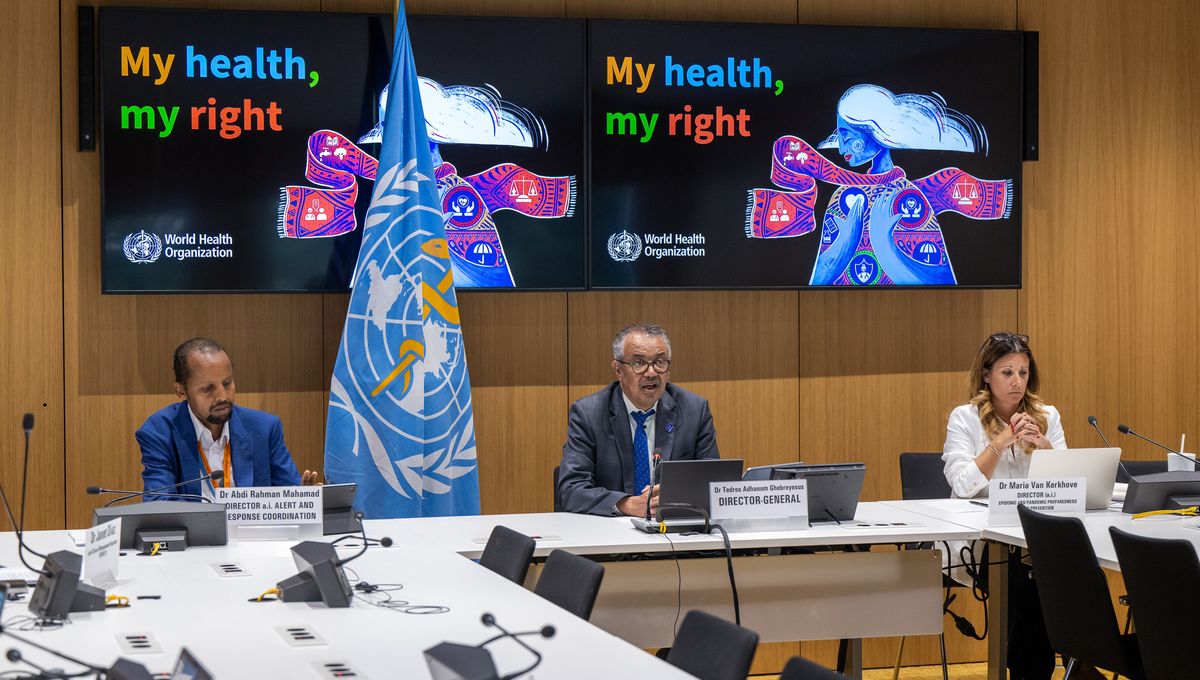
The mpox outbreak that is sweeping through at least 13 countries in Africa has been declared a Public Health Emergency of International Concern (PHEIC) by the World Health Organization (WHO). Just days after the Africa Centres for Disease Control and Prevention (Africa CDC) made a similar, first-of-its-kind declaration for the continent of Africa, the WHO announced that an emergency committee had found mpox is once again a threat to global public health.
“The emergence of a new clade of mpox, its rapid spread in eastern DRC [Democratic Republic of the Congo], and the reporting of cases in several neighbouring countries are very worrying,” said WHO Director-General Dr Tedros Adhanom Ghebreyesus in a statement.
“On top of outbreaks of other mpox clades in DRC and other countries in Africa, it’s clear that a coordinated international response is needed to stop these outbreaks and save lives.”
We’ve been here before with mpox (formerly known as monkeypox). Back in 2022, the declaration of a PHEIC was made by the WHO after an outbreak of the disease spread to over 60 countries with no previously reported cases, largely via sexual transmission.
The symptoms of mpox usually begin with a fever, sore throat, muscle aches – general signs of illness that can easily be mistaken for something else. Once the characteristic rash appears, patients develop blisters that can be itchy or painful, and can affect skin anywhere on the body. Someone with mpox can spread the disease until all the blisters are fully healed.
A poxvirus from the same family as smallpox, mpox is thankfully far less lethal than the disease that used to kill hundreds of thousands of people each year in Europe alone. Most people do recover within 2-4 weeks, but the disease can still have serious consequences, particularly for young children, pregnant people, and those with compromised immune systems. Complications like secondary bacterial infections can be fatal.
Vaccines were what saw off smallpox, and there are vaccines available for mpox too – but “available” does not necessarily equal “accessible”.
During the 2022 outbreak, criticism was leveled at a global response that appeared to neglect the African nations that were hardest hit by the disease. While rapid public information campaigns and vaccine rollouts helped get protective shots to those most at risk in some regions, attention turned away from countries like the DRC – even as cases there were actually increasing, Africa CDC argues.
“Mpox, originating in Africa, was neglected there, and later caused a global outbreak in 2022,” said Committee Chair Professor Dimie Ogoina. “It is time to act decisively to prevent history from repeating itself.”
In the last month, over 100 lab-confirmed cases of the clade 1b strain of mpox have been detected in Burundi, Kenya, Rwanda, and Uganda, all countries that have not previously seen an mpox outbreak. Clade 1b has been “associated with more severe disease and higher death rates,” than the strain behind the 2022 outbreak, commented infectious disease specialist Associate Professor Sanjaya Senanayake of the The Australian National University.
According to Africa CDC, issues with testing and contact tracing mean that case numbers are likely being underestimated, with suspected cases so far this year exceeding a staggering 17,000 on the continent. It’s hoped that the declaration of a PHEIC from the WHO will help accelerate and shore up the response.
“Significant efforts are already underway in close collaboration with communities and governments, with our country teams working on the frontlines to help reinforce measures to curb mpox,” said Dr Matshidiso Moeti, WHO Regional Director for Africa. “With the growing spread of the virus, we’re scaling up further through coordinated international action to support countries bring the outbreaks to an end.”
Source Link: WHO Says Mpox Outbreak Now A Public Health Emergency Of International Concern